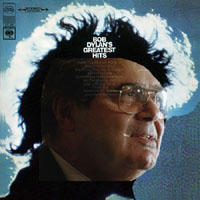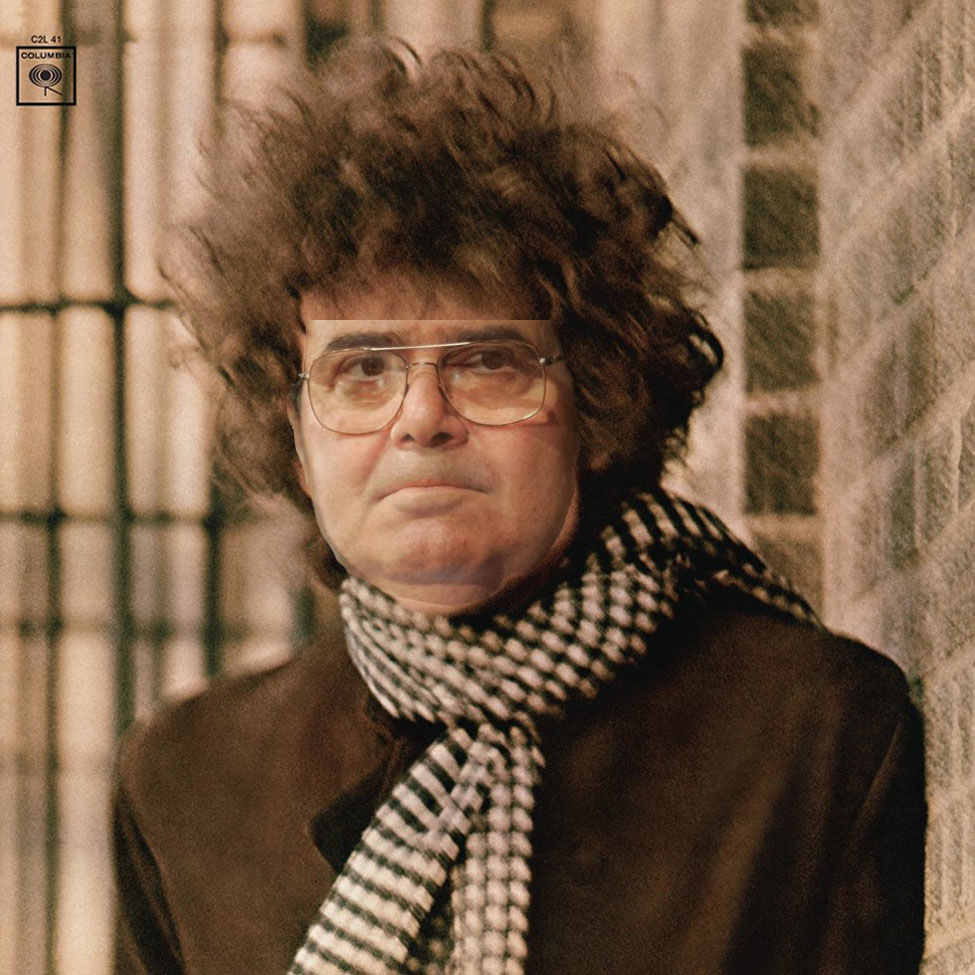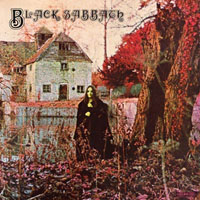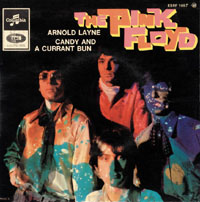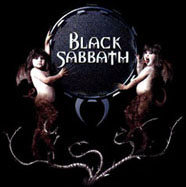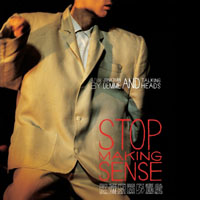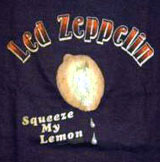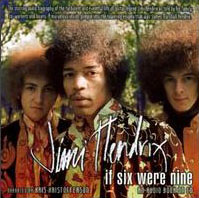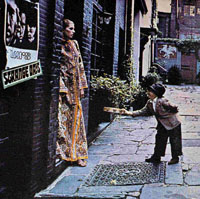Antonin Scalia’s ‘Greatest Hits’
‘Essence … poetry … pop-philosophy’
“What possible ‘essence’ does substantive due process ‘capture’ in an ‘accurate and comprehensive way’? It stands for nothing whatever, except those freedoms and entitlements that this Court really likes. ... Hardly a distillation of essence. If the opinion is correct that the two clauses ‘converge in the identification and definition of a right,’ that is only because the majority’s likes and dislikes are predictably compatible. I could go on. The world does not expect logic and precision in poetry or inspirational pop-philosophy; it demands them in the law. The stuff contained in today’s opinion has to diminish this Court’s reputation for clear thinking and sober analysis.”
— Obergefell v. Hodges, 576 U.S. ___ (2015) (Scalia, J., dissenting).
Shame on Sham
“By accepting plaintiffs’ vague, contradictory, and unsubstantiated allegations of ‘concern’ about the environment as adequate to prove injury in fact, and accepting them even in the face of a finding that the environment was not demonstrably harmed, the Court makes the injury-in-fact requirement a sham. If there are permit violations, and a member of a plaintiff environmental organization lives near the offending plant, it would be difficult not to satisfy today’s lenient standard.”
— Friends of the Earth, Inc. v. Laidlaw Envtl. Servs.(TOC),Inc., 528 U.S. 167 (2000) (Scalia, J., dissenting).
‘Of thought & expression’
“The opinion is couched in a style that is as pretentious as its content is egotistic. It is one thing for separate concurring or dissenting opinions to contain extravagances, even silly extravagances, of thought and expression; it is something else for the official opinion of the Court to do so. Of course the opinion’s showy profundities are often profoundly incoherent.”
— Obergefell v. Hodges, 576 U.S. ___ (2015) (Scalia, J., dissenting).
‘The-times-they-are-a-changin’
 “The line it is drawn;
“The line it is drawn;The curse it is cast.
The slow one now
Will later be fast,
As the present now
Will later be past.”
“The Court’s implication, ante that where electronic privacy is concerned we should decide less than we otherwise would (that is, less than the principle of law necessary to resolve the case and guide private action)—or that we should hedge our bets by concocting case-specific standards or issuing opaque opinions—is in my view indefensible. The-times-they-are-a-changin’ is a feeble excuse for disregard of duty.”
— Ontario v. Quon, 560 U.S. 746 (2010) (Scalia, J., concurring).
‘Idiots … lunatics … lack of reason’
“Only the severely or profoundly mentally retarded, commonly known as ‘idiots,’ enjoyed any special status under the law at that time [in 1791]. They, like lunatics, suffered a ‘deficiency in will’ rendering them unable to tell right from wrong. 4 W. Blackstone, Commentaries on the Laws of England 24 (1769); see also Penry v. Lynaugh, 492 U.S., at 331—332 (‘The term ‘idiot’ was generally used to describe persons who had a total lack of reason or understanding, or an inability to distinguish between good and evil.’)”
— Atkins v. Virginia, 536 U.S. 304 (2002) (Scalia, J., dissenting)
‘As night [divides] the day’
“The Framers did not like corporations, the dissent concludes, and therefore it follows (as night the day) that corporations had no rights of free speech. Of course the Framers' personal affection or disaffection for corporations is relevant only insofar as it can be thought to be reflected in the understood meaning of the text they enacted — not, as the dissent suggests, as a freestanding substitute for that text. But the dissent's distortion of proper analysis is even worse than that. ...”
— Citizens United v. FEC, 558 U.S. 310, 386 (2010) (Scalia, J., concurring).
In the court of King Canute
“The [Court] majority ... pussyfoots around the lack of coercion by invalidating the Leadership Act for ‘requiring recipients to profess a specific belief’ and ‘demanding that funding recipients adopt—as their own—the Government’s view on an issue of public concern.’ But like King Cnut’s commanding of the tides, here the Government’s ‘requiring’ and ‘demanding’ have no coercive effect.”
— Agency for Int'l Dev. v. Alliance for Open Soc'y Int'l, Inc., 133 S. Ct. 2321, 2333-2335 (2013).
‘The wicked flee’
“California conceded below that Officer Pertoso did not have the ‘reasonable suspicion’ required to justify stopping Hodari. That it would be unreasonable to stop, for brief inquiry, young men who scatter in panic upon the mere sighting of the police is not self-evident, and arguably contradicts proverbial common sense. See Proverbs 28:1 (‘The wicked flee when no man pursueth’). We do not decide that point here, but rely entirely upon the State’s concession.”
— Cal. v. Hodari D., 499 U.S. 621, 624 (1991).
‘Orwellian’
“Despite the Court’s Orwellian assertion to the contrary, it is undeniable that later cases (discussed above) have undermined Miranda’s doctrinal underpinnings, denying constitutional violation and thus stripping the holding of its only constitutionally legitimate support. Miranda’s critics and supporters alike have long made this point. See Stone, The Miranda Doctrine in the Burger Court, 1977 S. Ct. Rev. 99, 118 (‘Mr. Justice Rehnquist’s conclusion that there is a violation of the Self-Incrimination Clause only if a confession is involuntary … is an outright rejection of the core premises of Miranda’).”
— Dickerson v. United States, 530 U.S. 428 (2000) (Scalia, J., dissenting).
‘Sheep’
“The premise of the First Amendment is that the American people are neither sheep nor fools, and hence fully capable of considering both the substance of the speech presented to them and its proximate and ultimate source. If that premise is wrong, our democracy has a much greater problem to overcome than merely the influence of amassed wealth. Given the premises of democracy, there is no such thing as too much speech.”
— McConnell v. FEC, 540 U.S. 93, 258-259 (2003).
‘Wolf’
 “That is what this suit is about. Power. The allocation of power among Congress, the President, and the courts in such fashion as to preserve the equilibrium the Constitution sought to establish -- so that "a gradual concentration of the several powers in the same department," Federalist No. 51, p. 321 (J. Madison), can effectively be resisted. Frequently an issue of this sort will come before the Court clad, so to speak, in sheep's clothing: the potential of the asserted principle to effect important change in the equilibrium of power is not immediately evident, and must be discerned by a careful and perceptive analysis. But this wolf comes as a wolf.”
“That is what this suit is about. Power. The allocation of power among Congress, the President, and the courts in such fashion as to preserve the equilibrium the Constitution sought to establish -- so that "a gradual concentration of the several powers in the same department," Federalist No. 51, p. 321 (J. Madison), can effectively be resisted. Frequently an issue of this sort will come before the Court clad, so to speak, in sheep's clothing: the potential of the asserted principle to effect important change in the equilibrium of power is not immediately evident, and must be discerned by a careful and perceptive analysis. But this wolf comes as a wolf.”
— Morrison v. Olson, 487 U.S. 654, 699, 108 S. Ct. 2597, 2623 (1988) (Scalia, J., dissenting).
‘A cloud of obfuscating smoke’
“Justice Stevens also appeals to the undoubted fact that some in the founding generation thought that the Religion Clauses of the First Amendment should have a narrower meaning, protecting only the Christian religion or perhaps only Protestantism. I am at a loss to see how this helps his case, except by providing a cloud of obfuscating smoke.”
— McCreary County v. ACLU, 545 U.S. 844 (2005)
‘Illusion’
“The random and unpredictable results of our consequently unchanneled individual views make it increasingly evident, Term after Term, that the tools for this job are not to be found in the lawyer's -- and hence not in the judge's -- workbox. I continue to dissent from this enterprise of devising an Abortion Code, and from the illusion that we have authority to do so.”
— Hodgson v. Minn., 497 U.S. 417, 479-80, (Scalia, J., concurring in the judgment in part and dissenting in part).
‘Distorted view’
“The Court’s distorted view creates an expansive exception to the Confrontation Clause for violent crimes. Because Bryant posed a continuing threat to public safety in the Court’s imagination, the emergency persisted for confrontation purposes at least until the police learned his ‘motive for and location after the shooting.’ ... This is a dangerous definition of emergency ...
— Michigan v. Bryant, 131 S. Ct. 1143, (2011) (Scalia, J., dissenting).
‘Immense and frightening’
“And so, to justify today's agreed-upon result, the Court must adopt a significant new, if not entirely comprehensible, principle of constitutional law … that this Court has the power, not merely to apply the Constitution but to expand it, imposing what it regards as useful ‘prophylactic’ restrictions upon Congress and the States. That is an immense and frightening antidemocratic power, and it does not exist.”
— Dickerson v. United States, 530 U.S. 428, 445-446 (2000) (Scalia, J., dissenting).
‘Raw Power’
“As Justice Stevens has elsewhere explained, ‘this Court’s power to require state courts to exclude probative self-incriminatory statements rests entirely on the premise that the use of such evidence violates the Federal Constitution. … If the Court does not accept that premise, it must regard the holding in the Miranda case itself, as well as all of the federal jurisprudence that has evolved from that decision, as nothing more than an illegitimate exercise of raw judicial power.’ Quite so.”
— Dickerson v. United States, 530 U.S. 428, 456-457 (2000) (citing Oregon v. Elstad, 470 U.S. at 370) (Scalia, J., dissenting).
‘Bedeviled’
“Our Religion Clause jurisprudence has become bedeviled (so to speak) by reliance on formulaic abstractions that are not derived from, but positively conflict with, our long-accepted constitutional traditions. Foremost among these has been the so called Lemon test ... Unfortunately, however, the Court has replaced Lemon with its psycho coercion test, which suffers the double disability of having no roots whatever in our people's historic practice, and being as infinitely expandable as the reasons for psychotherapy itself.”
— Lee v. Weisman, 505 U.S. 577, 644 (1992) (Scalia, J., dissenting).
‘Just for the devil of it’
 “In a way, using unreliable legislative history to confirm what the statute plainly says anyway (or what the record plainly shows) is less objectionable since, after all, it has absolutely no effect upon the outcome. But in a way, this utter lack of necessity makes it even worse – calling to mind St. Augustine’s enormous remorse at stealing pears when he was not even hungry, and just for the devil of it (‘not seeking aught through the shame, but the shame itself!’). The Confessions, Book 2, P9, in 18 Great Books of the Western World 10-11 (1952).
“In a way, using unreliable legislative history to confirm what the statute plainly says anyway (or what the record plainly shows) is less objectionable since, after all, it has absolutely no effect upon the outcome. But in a way, this utter lack of necessity makes it even worse – calling to mind St. Augustine’s enormous remorse at stealing pears when he was not even hungry, and just for the devil of it (‘not seeking aught through the shame, but the shame itself!’). The Confessions, Book 2, P9, in 18 Great Books of the Western World 10-11 (1952).
— Crosby v. Nat'l Foreign Trade Council, 530 U.S. 363, 391 (2000).
CONFRONTATION
“The U.S. Constitution guarantees one way to challenge or verify the results of a forensic test: confrontation.
 The Supreme Court does not have license to suspend the Confrontation Clause when a preferable trial strategy is available.
... ‘To be sure, the Clause’s ultimate goal is to ensure reliability of evidence ... It commands, not that evidence be reliable, but that reliability be assessed in a particular manner: by testing in the crucible of cross-examination. Dispensing with confrontation because testimony is obviously reliable is akin to dispensing with jury trial because a defendant is obviously guilty. This is not what the Sixth Amendment prescribes.’” (Quoting from Crawford v. Washington, 541 U. S., at 61–62.)
The Supreme Court does not have license to suspend the Confrontation Clause when a preferable trial strategy is available.
... ‘To be sure, the Clause’s ultimate goal is to ensure reliability of evidence ... It commands, not that evidence be reliable, but that reliability be assessed in a particular manner: by testing in the crucible of cross-examination. Dispensing with confrontation because testimony is obviously reliable is akin to dispensing with jury trial because a defendant is obviously guilty. This is not what the Sixth Amendment prescribes.’” (Quoting from Crawford v. Washington, 541 U. S., at 61–62.)
— Melendez-Diaz v. Massachusetts, 557 U.S. 305 (2009) (Scalia, J., writing for the Court).
‘Happy’
 “Imagine, for instance, special place-and-manner restrictions on all speech except that which ‘conveys a sense of contentment or happiness.’ This ‘happy speech’ limitation would not be ‘viewpoint-based’ – citizens would be able to express their joy in equal measure at either the rise or fall of the NASDAQ, at either the success or the failure of the Republican Party – and would not discriminate on the basis of subject matter, since gratification could be expressed about anything at all.”
“Imagine, for instance, special place-and-manner restrictions on all speech except that which ‘conveys a sense of contentment or happiness.’ This ‘happy speech’ limitation would not be ‘viewpoint-based’ – citizens would be able to express their joy in equal measure at either the rise or fall of the NASDAQ, at either the success or the failure of the Republican Party – and would not discriminate on the basis of subject matter, since gratification could be expressed about anything at all.”
— Hill v. Colo., 530 U.S. 703, 743 (2000).
Scales of power under thumb
“Turning a blind eye to federal constitutional error that benefits criminal defendants, allowing it to permeate in varying fashion each state Supreme Court’s jurisprudence, would change the uniform ‘law of the land’ into a crazy quilt. And on top of it all, of course, what the dissent proposes avowedly favors one party to the case: When a criminal defendant loses a questionable constitutional point, we may grant review; when the State loses, we must deny it. While it might be appropriate for Congress to place such a thumb upon the scales of our power to review, it seems to me a peculiar mode of decisionmaking for judges sworn to ‘impartially discharge U all the duties’ of their office.”
— Kansas v. Marsh, 548 US 163 (2006) (Scalia, J., concurring)
‘Irrational’
“To avoid the question of Roe v. Wade’s validity, with the attendant costs that this will have for the Court and for the principles of self-governance, on the basis of a standard that offers no guide but the Court’s own discretion, merely adds to the irrationality of what we do today. Similarly irrational is the new concept that Justice O’Connor introduces into the law in order to achieve her result, the notion of a State’s ‘interest in potential life when viability is possible.’ Since ‘viability’ means the mere possibility (not the certainty) of survivability outside the womb, ‘possible viability’ must mean the possibility of a possibility of survivability outside the womb.”
— Webster v. Reprod. Health Servs., 492 U.S. 490, 532 (1989).
‘Unprincipled’
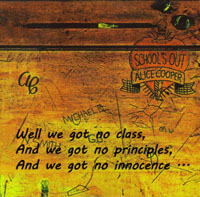 “The Court attempts to bolster its conclusion with an unprincipled and unequal application of the waiver doctrine. ... I come, finally, to the Court’s stinging observation that I joined the majority opinion in Standard Fire Ins. Co. v. Knowles, 568 U. S. ___ (2013)—a case that arose in the same posture as this one, but that was resolved without reference to the question whether the appellate court abused its discretion ... ”
“The Court attempts to bolster its conclusion with an unprincipled and unequal application of the waiver doctrine. ... I come, finally, to the Court’s stinging observation that I joined the majority opinion in Standard Fire Ins. Co. v. Knowles, 568 U. S. ___ (2013)—a case that arose in the same posture as this one, but that was resolved without reference to the question whether the appellate court abused its discretion ... ”
— Dart Cherokee Basin Operating Co. v. Owens, 574 U.S. __ (2014) (Scalia, J., dissenting).
‘Fortunate fit of stupidity’
“There is a world of difference, which the Court recognized under the traditional voluntariness test but ignored in Miranda, between compelling a suspect to incriminate himself and preventing him from foolishly doing so of his own accord. ... The Constitution is not, unlike the Miranda majority, offended by a criminal’s commendable qualm of conscience or fortunate fit of stupidity.”
— Dickerson v. United States, 530 U.S. 428, 449-450 (2000) (Scalia, J., dissenting).
‘Idiot’
“Due to their incompetence, idiots were ‘excused from the guilt, and of course from the punishment, of any criminal action committed under such deprivation of the senses.’ 4 W. Blackstone, Commentaries on the Laws of England 25 (1769). Instead, they were often committed to civil confinement or made wards of the State, thereby preventing them from ‘going loose, to the terror of the king’s subjects.’ 4 Blackstone 25.”
— Atkins v. Virginia, 536 U.S. 304 (2002) (Scalia, J., dissenting)
‘I would hide my head in a bag’
“If, even as the price to be paid for a fifth vote, I ever joined an opinion for the Court that began: ‘The Constitution promises liberty to all within its reach, a liberty that includes certain specific rights that allow persons, within a lawful realm, to define and express their identity,’ I would hide my head in a bag. The Supreme Court of the United States has descended from the disciplined legal reasoning of John Marshall and Joseph Story to the mystical aphorisms of the fortune cookie.”
— Obergefell v. Hodges, 576 U.S. ___ (2015) (Scalia, J., dissenting).
‘Cavalier …dressability’
“The Court’s treatment of the redressability requirement — which would have been unnecessary if it resolved the injury-in-fact question correctly — is equally cavalier … The Court nonetheless finds the redressability requirement satisfied here … The new standing law that the Court makes — like all expansions of standing beyond the traditional constitutional limits — has grave implications for democratic governance.”
— Friends of the Earth, Inc. v. Laidlaw Envtl. Servs.(TOC),Inc., 528 U.S. 167 (2000) (Scalia, J., dissenting).
‘Sex toys’
“Countless judicial decisions and legislative enactments have relied on the ancient proposition that a governing majority’s belief that certain sexual behavior is ‘immoral and unacceptable’ constitutes a rational basis for regulation. See, e.g., Williams v. Pryor, 240 F.3d 944, 949 (2001) (citing Bowers in upholding Alabama’s prohibition on the sale of sex toys on the ground that ‘[t]he crafting and safeguarding of public morality … indisputably is a legitimate government interest under rational basis scrutiny.’)”
— Lawrence v. Texas, 539 U.S. 558 (2003)
‘Pasties and g-strings’
“I am highly skeptical, to tell the truth, that the addition of pasties and g-strings will at all reduce the tendency of establishments such as Kandyland to attract crime and prostitution, and hence to foster sexually transmitted disease. The traditional power of government to foster good morals (bonos mores), and the acceptability of the traditional judgment (if Erie wishes to endorse it) that nude public dancing itself is immoral, have not been repealed by the First Amendment.”
— City of Erie v. Pap's A.M., 529 U.S. 277, 310 (2000).
‘Naked’
“This is a naked judicial claim to legislative—indeed, super-legislative—power; a claim fundamentally at odds with our system of government. Except as limited by a constitutional prohibition agreed to by the People, the States are free to adopt whatever laws they like, even those that offend the esteemed Justices’ ‘reasoned judgment.’ A system of government that makes the People subordinate to a committee of nine unelected lawyers does not deserve to be called a democracy.”
— Obergefell v. Hodges, 576 U.S. ___ (2015) (Scalia, J., dissenting).
‘Naked Eye’
 “Both think we know what's right; both know we know what's wrong; we tell ourselves so many many many lies.”
“Both think we know what's right; both know we know what's wrong; we tell ourselves so many many many lies.”“Thermal imagers detect infrared radiation, which virtually all objects emit but which is not visible to the naked eye. … The present case involves officers on a public street engaged in more than naked-eye surveillance of a home. … While it is certainly possible to conclude from the videotape of the thermal imaging that occurred in this case that no significant compromise of the homeowner’s privacy has occurred, we must take the long view, from the original meaning of the Fourth Amendment forward. … Where, as here, the Government uses a device that is not in general public use, to explore details of the home that would previously have been unknowable without physical intrusion, the surveillance is a search and is presumptively unreasonable without a warrant.”
— Kyllo v. United States, 389 U.S. 27 (2001).
‘Fornication’
“State laws against bigamy, same-sex marriage, adult incest, prostitution, masturbation, adultery, fornication, bestiality, and obscenity are likewise sustainable only in light of Bowers’ validation of laws based on moral choices. Every single one of these laws is called into question by today’s decision; the Court makes no effort to cabin the scope of its decision to exclude them from its holding. See ante, at 11 (noting ‘an emerging awareness that liberty gives substantial protection to adult persons in deciding how to conduct their private lives in matters pertaining to sex.’)”
— Lawrence v. Texas, 539 U.S. 558 (2003)
‘Drunken hooligans’
 “I staggered back to the underground,
and the breeze blew back my hair.
“I staggered back to the underground,
and the breeze blew back my hair.I remember throwin' punches around, and preachin' from my chair.”
“The New York law [during Colonial times] levied a fine of 20 shillings on anyone who fired a gun in certain places (including houses) on New Year’s Eve and the first two days of January, and was aimed at preventing the ‘great Damages … frequently done on [those days] by persons going House to House, with Guns and other Firearms and being often intoxicated with Liquor.’ It is inconceivable that this law would have been enforced against a person exercising his right to self-defense on New Year’s Day against such drunken hooligans.”
— District of Columbia v. Heller, 554 U.S. 570 (2008) (Scalia, J., writing for the Court).
‘O’er’
 “Hubris is sometimes defined as o’erweening pride; and pride, we know, goeth before a fall. The Judiciary is the ‘least dangerous’ of the federal branches because it has ‘neither Force nor Will, but merely judgment; and must ultimately depend upon the aid of the executive arm’ and the States, even for the efficacy of its judgments. With each decision of ours that takes from the People a question properly left to them—with each decision that is unabashedly based not on law, but on the ‘reasoned judgment’ of a bare majority of this Court—we move one step closer to being reminded of our impotence.”
“Hubris is sometimes defined as o’erweening pride; and pride, we know, goeth before a fall. The Judiciary is the ‘least dangerous’ of the federal branches because it has ‘neither Force nor Will, but merely judgment; and must ultimately depend upon the aid of the executive arm’ and the States, even for the efficacy of its judgments. With each decision of ours that takes from the People a question properly left to them—with each decision that is unabashedly based not on law, but on the ‘reasoned judgment’ of a bare majority of this Court—we move one step closer to being reminded of our impotence.”
— Obergefell v. Hodges, 576 U.S. ___ (2015) (Scalia, J., dissenting).
‘When I was young’
“The story is told of the elderly judge who, looking back over a long career, observes with satisfaction that ‘when I was young, I probably let stand some convictions that should have been overturned, and when I was old, I probably set aside some that should have stood; so overall, justice was done.’ I sometimes think that is an appropriate analog to this Court's constitutional jurisprudence, which alternately creates rights that the Constitution does not contain and denies rights that it does.”
— Cnty. of Riverside v. McLaughlin, 500 U.S. 44, 59-60, 1991) (Scalia, J., dissenting).
State of confusion
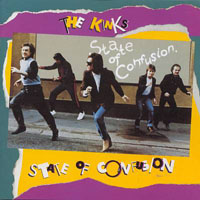 “Perhaps the Patient Protection and Affordable Care Act [‘Obamacare’] will attain the enduring status of the Social Security Act ... perhaps not. But this Court’s two decisions on the Act will surely be remembered through the years. The somersaults of statutory interpretation they have performed (‘penalty’ means tax ... ‘established by the State’ means not established by the State) will be cited by litigants endlessly, to the confusion of honest jurisprudence ... I dissent.”
“Perhaps the Patient Protection and Affordable Care Act [‘Obamacare’] will attain the enduring status of the Social Security Act ... perhaps not. But this Court’s two decisions on the Act will surely be remembered through the years. The somersaults of statutory interpretation they have performed (‘penalty’ means tax ... ‘established by the State’ means not established by the State) will be cited by litigants endlessly, to the confusion of honest jurisprudence ... I dissent.”
— King v. Burwell, 576 U.S. ___ (2015).
‘To confuse confusion’
“To confuse confusion yet again, the Court justifies its decision not to remand by simply falling back upon the different theory of just compensation espoused by the Ninth Circuit majority–namely, that just compensation will always be zero because the funds would not have earned interest for the clients in a non-IOLTA savings account. That does not conform, of course, with the Court’s previously announced standard for just compensation ... By refusing to undertake this inquiry, the Court reveals that its contention that the value of interest ‘actually earned’ is the measure of just compensation is a façade.”
— Brown v. Legal Foundation of Washington, 538 US 216 (2003) (Scalia, J., dissenting).
‘Juice not worth the squeeze’
“If the Bill of Rights had intended an exception to the freedom of speech in order to combat this malign proclivity of the officeholder to agree with those who agree with him, and to speak more with his supporters than his opponents, it would surely have said so. It did not do so, I think, because the juice is not worth the squeeze.”
— McConnell v. FEC, 540 U.S. 93, 259 (2003).
‘Ask the nearest hippie’
“Really? Who ever thought that intimacy and spirituality were [constitutional] freedoms? And if intimacy is, one would think Freedom of Intimacy is abridged rather than expanded by marriage. Ask the nearest hippie. Expression, sure enough, is a freedom, but anyone in a long-lasting marriage will attest that that happy state constricts, rather than expands, what one can prudently say.”
— Obergefell v. Hodges, 576 U.S. ___ (2015) (Scalia, J., dissenting).
Whose God?
“The Court's decision today is astounding. Chapter 748 involves no public aid to private schools and does not mention religion. In order to invalidate it, the Court casts aside, on the flimsiest of evidence, the strong presumption of validity that attaches to facially neutral laws, and invalidates the present accommodation because it does not trust New York to be as accommodating toward other religions (presumably those less powerful than the Satmar Hasidim) in the future. This is unprecedented — except that it continues, and takes to new extremes, a recent tendency in the opinions of this Court to turn the Establishment Clause into a repealer of our Nation's tradition of religious toleration. I dissent.”
— Bd. of Educ. v. Grumet, 512 U.S. 687, 752 (1994).
What God Wants
“From no other group does respondent require the sterility of speech that it demands of petitioners … The Club may only discuss morals and character, and cannot give its reasons why they should be fostered — because God wants and expects it, because it will make the Club members ‘saintly’ people, and because it emulates Jesus Christ. The Club may not, in other words, independently discuss the religious premise on which its views are based — that God exists and His assistance is necessary to morality. It may not defend the premise, and it absolutely must not seek to persuade the children that the premise is true. The children must, so to say, take it on faith. This is blatant viewpoint discrimination.”
— Good News Club v. Milford Central School, 533 U.S. 98 (2001) (Scalia, J., concurring)
‘Wondrous diversity’
Those [prior] holdings are surely proved correct today by the dissenters’ inability to agree, even between themselves, into which subcategory of religious speech the Club’s activities fell. If the distinction did have content, it would be beyond the courts’ competence to administer. And if courts (and other government officials) were competent, applying the distinction would require state monitoring of private, religious speech with a degree of pervasiveness that we have previously found unacceptable. I will not endorse an approach that suffers such a wondrous diversity of flaws.”
— Good News Club v. Milford Central School, 533 U.S. 98 (2001) (Scalia, J., concurring)
‘Sweet-mystery-of-life’
“And if the Court is referring not to the holding of Planned Parenthood v. Casey, but to the dictum of its famed sweet-mystery-of-life passage, ante, at 13 (‘At the heart of liberty is the right to define one’s own concept of existence, of meaning, of the universe, and of the mystery of human life’): That casts some doubt upon either the totality of our jurisprudence or else (presumably the right answer) nothing at all. I have never heard of a law that attempted to restrict one’s ‘right to define” certain concepts; and if the passage calls into question the government’s power to regulate actions based on one’s self-defined ‘concept of existence, etc.,’ it is the passage that ate the rule of law.”
— Lawrence v. Texas, 539 U.S. 558 (2003)
The width of a tirade
“JUSTICE SOUTER’s steamrolling of the difference between civil authority held by a church and civil authority held by members of a church is breathtaking.…
“JUSTICE SOUTER not only does not adopt the logical assumption, he does not even give the New York Legislature the benefit of the doubt. The following is the level of his analysis…
“I turn, next, to JUSTICE SOUTER’s second justification for finding an establishment of religion: his facile conclusion that the New York Legislature’s creation of the Kiryas Joel school district was religiously motivated. But in the Land of the Free, democratically adopted laws are not so easily impeached by unelected judges…
“I have little doubt that JUSTICE SOUTER would laud this humanitarian legislation if all of the distinctiveness of the students of Kiryas Joel were attributable to the fact that their parents were nonreligious commune dwellers, or American Indians, or gypsies. The creation of a special, one-culture school district for the benefit of those children would pose no problem …”
— Bd. of Educ. v. Grumet, 512 U.S. 687 (1994) (Scalia, J., dissenting).
Mea culpa
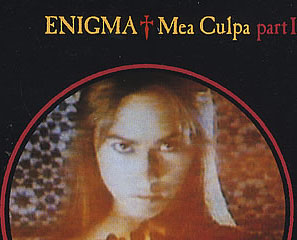 “As for my own culpability in overlooking the issue, I must accept that and will take it with me to the grave. But its irrelevance to my vote in the present case has been well expressed by Justice Jackson, in a passage quoted by the author of today’s opinion: ‘I see no reason why I should be consciously wrong today because I was unconsciously wrong yesterday.’ Massachusetts v. United States, 333 U.S. 611, 639–640 (1948) (dissenting opinion).”
“As for my own culpability in overlooking the issue, I must accept that and will take it with me to the grave. But its irrelevance to my vote in the present case has been well expressed by Justice Jackson, in a passage quoted by the author of today’s opinion: ‘I see no reason why I should be consciously wrong today because I was unconsciously wrong yesterday.’ Massachusetts v. United States, 333 U.S. 611, 639–640 (1948) (dissenting opinion).”
— Dart Cherokee Basin Operating Co. v. Owens, 574 U. S. __ (2014) (Scalia, J., dissenting).
‘Avant-garde’
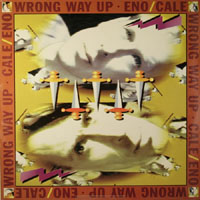 “Those who wish to create indecent and disrespectful art are as unconstrained now as they were before the enactment of this statute. Avant-garde artistes such as respondents remain entirely free to épater les bourgeois; they are merely deprived of the additional satisfaction of having the bourgeoisie taxed to pay for it. It is preposterous to equate the denial of taxpayer subsidy with measures aimed at the suppression of dangerous ideas.”
“Those who wish to create indecent and disrespectful art are as unconstrained now as they were before the enactment of this statute. Avant-garde artistes such as respondents remain entirely free to épater les bourgeois; they are merely deprived of the additional satisfaction of having the bourgeoisie taxed to pay for it. It is preposterous to equate the denial of taxpayer subsidy with measures aimed at the suppression of dangerous ideas.”
— National Endowment for the Arts v. Finley, 525 U.S. 569 (1998) (Scalia, J., concurring).
Virtuosic
 “So, what appears to have happened is that the plurality has facially invalidated not § 18.2-423, but its own hypothetical interpretation of § 18.2-423, and has then remanded to the Virginia Supreme Court to learn the actual interpretation of § 18.2-423. Words cannot express my wonderment at this virtuoso performance.”
“So, what appears to have happened is that the plurality has facially invalidated not § 18.2-423, but its own hypothetical interpretation of § 18.2-423, and has then remanded to the Virginia Supreme Court to learn the actual interpretation of § 18.2-423. Words cannot express my wonderment at this virtuoso performance.”
— Virginia v. Black, 538 U.S. 343, 379 (U.S. 2003).
‘In vain’
 “As I understand the various opinions today: One Justice holds that two-parent notification is unconstitutional without judicial bypass, but constitutional with bypass; four Justices would hold that two-parent notification is constitutional with or without bypass ... One will search in vain the document we are supposed to be construing for text that provides the basis for the argument over these distinctions; and will find in our society's tradition regarding abortion no hint that the distinctions are constitutionally relevant, much less any indication how a constitutional argument about them ought to be resolved.”
“As I understand the various opinions today: One Justice holds that two-parent notification is unconstitutional without judicial bypass, but constitutional with bypass; four Justices would hold that two-parent notification is constitutional with or without bypass ... One will search in vain the document we are supposed to be construing for text that provides the basis for the argument over these distinctions; and will find in our society's tradition regarding abortion no hint that the distinctions are constitutionally relevant, much less any indication how a constitutional argument about them ought to be resolved.”
— Hodgson v. Minn., 497 U.S. 417, 479-80, (Scalia, J., concurring in the judgment in part and dissenting in part).
‘Vain’
 “In its vain attempt to make the incredible plausible, however—or perhaps as an intended second goal—today’s opinion distorts our Confrontation Clause jurisprudence and leaves it in a shambles. Instead of clarifying the law, the Court makes itself the obfuscator of last resort.”
“In its vain attempt to make the incredible plausible, however—or perhaps as an intended second goal—today’s opinion distorts our Confrontation Clause jurisprudence and leaves it in a shambles. Instead of clarifying the law, the Court makes itself the obfuscator of last resort.”
— Michigan v. Bryant, 131 S. Ct. 1143, (2011) (Scalia, J., dissenting).
‘Under a cloud’
 “... And any officers appointed in those circumstances would have served under a cloud, unable to determine with any degree of confidence whether their appointments were valid. Fumbling for some textually grounded standard, the majority seizes on the Adjournments Clause, which bars either House from adjourning for more than three days without the other’s consent. ... It goes without saying that nothing in the constitutional text supports that disposition.”
“... And any officers appointed in those circumstances would have served under a cloud, unable to determine with any degree of confidence whether their appointments were valid. Fumbling for some textually grounded standard, the majority seizes on the Adjournments Clause, which bars either House from adjourning for more than three days without the other’s consent. ... It goes without saying that nothing in the constitutional text supports that disposition.”
— NLRB v. Canning, 134 S. Ct. 2550, 2598 (2014) (Scalia, J., concurring).
Senate on siesta
 “To avoid the absurd results that follow from its colloquial reading of ‘the Recess,’ the majority ... identifies no textual basis whatsoever ... It is inconceivable that the Framers would have left the circumstances in which the President could exercise such a significant and potentially dangerous power so utterly indeterminate. ... Yet on the majority’s view, when the first Senate considered taking a 1-month break, a 3-day weekend, or a half-hour siesta, it had no way of knowing whether the President would be constitutionally authorized to appoint officers in its absence. ...
“To avoid the absurd results that follow from its colloquial reading of ‘the Recess,’ the majority ... identifies no textual basis whatsoever ... It is inconceivable that the Framers would have left the circumstances in which the President could exercise such a significant and potentially dangerous power so utterly indeterminate. ... Yet on the majority’s view, when the first Senate considered taking a 1-month break, a 3-day weekend, or a half-hour siesta, it had no way of knowing whether the President would be constitutionally authorized to appoint officers in its absence. ...
— NLRB v. Canning, 134 S. Ct. 2550, 2598 (2014) (Scalia, J., concurring).
‘Stare’
 “The Court's reliance upon stare decisis can best be described as contrived. It insists upon the necessity of adhering not to all of Roe, but only to what it calls the ‘central holding.’ It seems to me that stare decisis ought to be applied even to the doctrine of stare decisis, and I confess never to have heard of this new, keep-what-you-want-and-throw-away-the-rest version. … I suppose the Court is entitled to call a ‘central holding’ whatever it wants to call a ‘central holding’ — which is, come to think of it, perhaps one of the difficulties with this modified version of stare decisis.
“The Court's reliance upon stare decisis can best be described as contrived. It insists upon the necessity of adhering not to all of Roe, but only to what it calls the ‘central holding.’ It seems to me that stare decisis ought to be applied even to the doctrine of stare decisis, and I confess never to have heard of this new, keep-what-you-want-and-throw-away-the-rest version. … I suppose the Court is entitled to call a ‘central holding’ whatever it wants to call a ‘central holding’ — which is, come to think of it, perhaps one of the difficulties with this modified version of stare decisis.
— Planned Parenthood v. Casey, 505 U.S. 833, 993-94, (1992) (Scalia, J., concurring in part and dissenting in part).
‘Sphinx of judicial arrogance’
 “Today’s judgment converts Miranda from a milestone of judicial overreaching into the very Cheops’ Pyramid (or perhaps the Sphinx would be a better analogue) of judicial arrogance. In imposing its Court-made code upon the States, the original opinion at least asserted that it was demanded by the Constitution. Today’s decision does not pretend that it is—and yet still asserts the right to impose it against the will of the people’s representatives in Congress.”
“Today’s judgment converts Miranda from a milestone of judicial overreaching into the very Cheops’ Pyramid (or perhaps the Sphinx would be a better analogue) of judicial arrogance. In imposing its Court-made code upon the States, the original opinion at least asserted that it was demanded by the Constitution. Today’s decision does not pretend that it is—and yet still asserts the right to impose it against the will of the people’s representatives in Congress.”
— Dickerson v. United States, 530 U.S. 428, 465 (2000) (Scalia, J., dissenting).
‘Nine-headed Caesar’
 “The issue, however, is not whether court rules are ‘mutable’; they assuredly are. It is not whether, in the light of ‘various circumstances,’ they can be ‘modified’; they assuredly can. The issue is whether, as mutated and modified, they must make sense. The requirement that they do so is the only thing that prevents this Court from being some sort of nine-headed Caesar, giving thumbs-up or thumbs-down to whatever outcome, case by case, suits or offends its collective fancy.”
“The issue, however, is not whether court rules are ‘mutable’; they assuredly are. It is not whether, in the light of ‘various circumstances,’ they can be ‘modified’; they assuredly can. The issue is whether, as mutated and modified, they must make sense. The requirement that they do so is the only thing that prevents this Court from being some sort of nine-headed Caesar, giving thumbs-up or thumbs-down to whatever outcome, case by case, suits or offends its collective fancy.”
— Dickerson v. United States, 530 U.S. 428, 455 (2000) (Scalia, J., dissenting).
The boss is always right
 “There was in my view no basis for holding that patronage-based dismissals violated the First Amendment – much less for holding, as the Court does today, that even patronage hiring does so. … The Court holds that the governmental benefits of patronage cannot reasonably be thought to outweigh its ‘coercive’ effects … It seems to me that that categorical pronouncement reflects a naive vision of politics and an inadequate appreciation of the systemic effects of patronage in promoting political stability.”
“There was in my view no basis for holding that patronage-based dismissals violated the First Amendment – much less for holding, as the Court does today, that even patronage hiring does so. … The Court holds that the governmental benefits of patronage cannot reasonably be thought to outweigh its ‘coercive’ effects … It seems to me that that categorical pronouncement reflects a naive vision of politics and an inadequate appreciation of the systemic effects of patronage in promoting political stability.”
— Rutan v. Republican Party, 497 U.S. 62, 97, 103-104 (1990).
‘Inutterable horror’
 “The Court opinion's looming specter of inutterable horror—‘[i]f § 3 of the Arizona statute were valid, every State could give itself independent authority to prosecute federal registration violations,’ ante, 183 L. Ed. 2d, at 370—seems to me not so horrible and even less looming. But there has come to pass, and is with us today, the specter that Arizona and the States that support it predicted: A Federal Government that does not want to enforce the immigration laws as written, and leaves the States' borders unprotected against immigrants whom those laws would exclude. So the issue is a stark one. Are the sovereign States at the mercy of the Federal Executive's refusal to enforce the Nation's immigration laws?”
“The Court opinion's looming specter of inutterable horror—‘[i]f § 3 of the Arizona statute were valid, every State could give itself independent authority to prosecute federal registration violations,’ ante, 183 L. Ed. 2d, at 370—seems to me not so horrible and even less looming. But there has come to pass, and is with us today, the specter that Arizona and the States that support it predicted: A Federal Government that does not want to enforce the immigration laws as written, and leaves the States' borders unprotected against immigrants whom those laws would exclude. So the issue is a stark one. Are the sovereign States at the mercy of the Federal Executive's refusal to enforce the Nation's immigration laws?”
— Arizona v. United States, 132 S. Ct. 2492, 2521 (2012).
Ghoulish
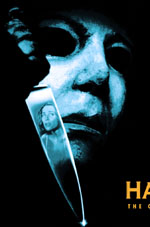 “As to the Court's invocation of the Lemon test: Like some ghoul in a late-night horror movie that repeatedly sits up in its grave and shuffles abroad, after being repeatedly killed and buried, Lemon stalks our Establishment Clause jurisprudence once again, frightening the little children and school attorneys of Center Moriches Union Free School District. ... Over the years, however, no fewer than five of the currently sitting Justices have, in their own opinions, personally driven pencils through the creature's heart.”
“As to the Court's invocation of the Lemon test: Like some ghoul in a late-night horror movie that repeatedly sits up in its grave and shuffles abroad, after being repeatedly killed and buried, Lemon stalks our Establishment Clause jurisprudence once again, frightening the little children and school attorneys of Center Moriches Union Free School District. ... Over the years, however, no fewer than five of the currently sitting Justices have, in their own opinions, personally driven pencils through the creature's heart.”
— Lamb's Chapel v. Ctr. Moriches Union Free Sch. Dist., 508 U.S. 384, 398 (1993).
‘More Hannibal than Hamlet’
 “Justice Kennedy asserts that to declare nonjusticiability would be incautious. Our rush to such a holding after a mere 18 years of fruitless litigation ‘contrasts starkly’ he says, ‘with the more patient approach’ that this Court has taken in the past. We think not. When it has come to determining what areas fall beyond our Article III authority to adjudicate, this Court’s practice, from the earliest days of the Republic to the present, has been more reminiscent of Hannibal than of Hamlet.”
“Justice Kennedy asserts that to declare nonjusticiability would be incautious. Our rush to such a holding after a mere 18 years of fruitless litigation ‘contrasts starkly’ he says, ‘with the more patient approach’ that this Court has taken in the past. We think not. When it has come to determining what areas fall beyond our Article III authority to adjudicate, this Court’s practice, from the earliest days of the Republic to the present, has been more reminiscent of Hannibal than of Hamlet.”
— Vieth v. Jubelirer, 541 U.S. 267 (2004) (Scalia, J., writing for the Court).
‘Psycho-journey’
 “A few citations of ‘research in psychology’ that have no particular bearing upon the precise issue here, cannot disguise the fact that the Court has gone beyond the realm where judges know what they are doing. But interior decorating is a rock-hard science compared to psychology practiced by amateurs. … Whatever the merit of those cases [cited by the majority as precedent], they do not support, much less compel, the Court’s psycho-journey.”
“A few citations of ‘research in psychology’ that have no particular bearing upon the precise issue here, cannot disguise the fact that the Court has gone beyond the realm where judges know what they are doing. But interior decorating is a rock-hard science compared to psychology practiced by amateurs. … Whatever the merit of those cases [cited by the majority as precedent], they do not support, much less compel, the Court’s psycho-journey.”
— Lee v. Weisman, 505 U.S. 577, 636 (1992) (Scalia, J., dissenting).
‘Outer limits’
 “In sum, if this case is, as the Court suggests, within the central core of ‘deterrence’ standing, it is impossible to imagine what the ‘outer limits’ could possibly be. The Court’s expressed reluctance to define those outer limits serves only to disguise the fact that it has promulgated a revolutionary new doctrine of standing that will permit the entire body of public civil penalties to be handed over to enforcement by private interests.”
“In sum, if this case is, as the Court suggests, within the central core of ‘deterrence’ standing, it is impossible to imagine what the ‘outer limits’ could possibly be. The Court’s expressed reluctance to define those outer limits serves only to disguise the fact that it has promulgated a revolutionary new doctrine of standing that will permit the entire body of public civil penalties to be handed over to enforcement by private interests.”
— Friends of the Earth, Inc. v. Laidlaw Envtl. Servs. (TOC), Inc., 528 U.S. 167, 208 (2000).
‘Twilight Zone’
 “It has come to this. Called upon to explore the jurisprudential twilight zone between two errant lines of precedent, we confront a frighteningly bizarre question: Does the Equal Protection Clause of the Fourteenth Amendment forbid what its text plainly requires? Needless to say (except that this case obliges us to say it), the question answers itself. ‘The Constitution proscribes government discrimination on the basis of race, and state-provided education is no exception.’ Grutter v. Bollinger, 539 U.S. 306, 349 (2003) (Scalia, J., concurring in part and dissenting in part). It is precisely this understanding—the correct understanding—of the federal Equal Protection Clause that the people of the State of Michigan have adopted for their own fundamental law. By adopting it, they did not simultaneously offend it.”
“It has come to this. Called upon to explore the jurisprudential twilight zone between two errant lines of precedent, we confront a frighteningly bizarre question: Does the Equal Protection Clause of the Fourteenth Amendment forbid what its text plainly requires? Needless to say (except that this case obliges us to say it), the question answers itself. ‘The Constitution proscribes government discrimination on the basis of race, and state-provided education is no exception.’ Grutter v. Bollinger, 539 U.S. 306, 349 (2003) (Scalia, J., concurring in part and dissenting in part). It is precisely this understanding—the correct understanding—of the federal Equal Protection Clause that the people of the State of Michigan have adopted for their own fundamental law. By adopting it, they did not simultaneously offend it.”
— Schuette v. Coalition to Defend Affirmative Action, 572 U.S. ____ (2014) (Scalia, J., concurring in judgment).
‘Torturing logic’
 “And the argument not only tortures logic, it also distorts reality, resting as it does on the premise that henceforth no ‘responsible attorney’ will fail to include evidence supporting federal jurisdiction in a notice of removal. Even discounting the existence of irresponsible attorneys, but responsible attorneys, and even responsible judges, sometimes make mistakes.”
“And the argument not only tortures logic, it also distorts reality, resting as it does on the premise that henceforth no ‘responsible attorney’ will fail to include evidence supporting federal jurisdiction in a notice of removal. Even discounting the existence of irresponsible attorneys, but responsible attorneys, and even responsible judges, sometimes make mistakes.”
— Dart Cherokee Basin Operating Co. v. Owens, 574 U. S. __ (2014) (Scalia, J., dissenting).
‘Kafkaesque’
 “Complaints about this case are ... properly directed to this Court’s Kafkaesque determination that professional sports organizations, and the fields they rent for their exhibitions, are ‘places of public accommodation” to the competing athletes, and the athletes themselves ‘customers’ of the organization that pays them; its Alice in Wonderland determination that there are such things as judicially determinable ‘essential’ and ‘nonessential’ rules of a made-up game; and its Animal Farm determination that fairness and the ADA mean that everyone gets to play by individualized rules which will assure that no one’s lack of ability (or at least no one’s lack of ability so pronounced that it amounts to a disability) will be a handicap.”
“Complaints about this case are ... properly directed to this Court’s Kafkaesque determination that professional sports organizations, and the fields they rent for their exhibitions, are ‘places of public accommodation” to the competing athletes, and the athletes themselves ‘customers’ of the organization that pays them; its Alice in Wonderland determination that there are such things as judicially determinable ‘essential’ and ‘nonessential’ rules of a made-up game; and its Animal Farm determination that fairness and the ADA mean that everyone gets to play by individualized rules which will assure that no one’s lack of ability (or at least no one’s lack of ability so pronounced that it amounts to a disability) will be a handicap.”
— PGA Tour, Inc. v. Martin, 532 U.S. 661 (2001) (Scalia, J., dissenting).
Elementary
 “As the Court colorfully puts it, if the dog of legislative history has not barked nothing of great significance can have transpired. Apart from the questionable wisdom of assuming that dogs will bark when something important is happening, we have forcefully and explicitly rejected the Conan Doyle approach to statutory construction in the past. In ascertaining the meaning of a statute, a court cannot, in the manner of Sherlock Holmes, pursue the theory of the dog that did not bark. We are here to apply the statute, not legislative history, and certainly not the absence of legislative history. Statutes are the law though sleeping dogs lie.”
“As the Court colorfully puts it, if the dog of legislative history has not barked nothing of great significance can have transpired. Apart from the questionable wisdom of assuming that dogs will bark when something important is happening, we have forcefully and explicitly rejected the Conan Doyle approach to statutory construction in the past. In ascertaining the meaning of a statute, a court cannot, in the manner of Sherlock Holmes, pursue the theory of the dog that did not bark. We are here to apply the statute, not legislative history, and certainly not the absence of legislative history. Statutes are the law though sleeping dogs lie.”
—Chisom v. Roemer, 501 U.S. 380, 406 (1991).
‘Illogical ... obvious non sequitur’
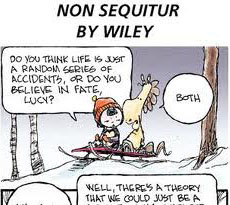 “The Court, however, says (quite illogically) that it means the Tenth Circuit must have agreed with the District Court’s incorrect legal analysis. It is hard to imagine a more obvious non sequitur.”
“The Court, however, says (quite illogically) that it means the Tenth Circuit must have agreed with the District Court’s incorrect legal analysis. It is hard to imagine a more obvious non sequitur.”
— Dart Cherokee Basin Operating Co. v. Owens, 574 U. S. __ (2014) (Scalia, J., dissenting).
Surely, you can’t be serious
 “Governmental ‘neutrality’ between religion and nonreligion? Who says so? Surely not the words of the Constitution. Surely not the history and traditions that reflect our society’s constant understanding of those words. Surely not even the current sense of our society, recently reflected in an Act of Congress criticizing a Court of Appeals opinion that had held ‘under God’ in the Pledge of Allegiance unconstitutional.”
“Governmental ‘neutrality’ between religion and nonreligion? Who says so? Surely not the words of the Constitution. Surely not the history and traditions that reflect our society’s constant understanding of those words. Surely not even the current sense of our society, recently reflected in an Act of Congress criticizing a Court of Appeals opinion that had held ‘under God’ in the Pledge of Allegiance unconstitutional.”
— McCreary County v. ACLU, 545 U.S. 844 (2005).
Responsible lawyers
 “Even in the legal utopia imagined by the Court—a world in which all lawyers are responsible and no lawyers make mistakes—it is easy to imagine ways in which the issue could come back to the circuit court.”
“Even in the legal utopia imagined by the Court—a world in which all lawyers are responsible and no lawyers make mistakes—it is easy to imagine ways in which the issue could come back to the circuit court.”
— Dart Cherokee Basin Operating Co. v. Owens, 574 U. S. __ (2014) (Scalia, J., dissenting).
‘Special solicitude’ for lawyers
“The Court’s decision displays not only an improper special solicitude for our own profession; it also displays, I think, the very fondness for ‘reform through the courts’ – the making of innumerable social judgments through judge-pronounced constitutional imperatives – that prompted Congress to restrict publicly funded litigation of this sort.”
— Legal Servs. Corp. v. Velazquez, 531 U.S. 533, 562 (2001).
‘Boutique of wonderful litigation’
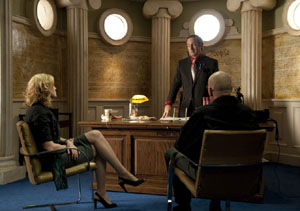 “And in other areas, of course, a whole new boutique of wonderful First Amendment litigation opens its doors. Must a parade permit, for example, be issued to a group that refuses to provide its identity, or that agrees to do so only under assurance that the identity will not be made public? Must a municipally owned theater that is leased for private productions book anonymously sponsored presentations? Must a government periodical that has a ‘letters to the editor’ column disavow the policy that most newspapers have against the publication of anonymous letters? Must a public university that makes its facilities available for a speech by Louis Farrakhan or David Duke refuse to disclose the on-campus or off-campus group that has sponsored or paid for the speech? Must a municipal ‘public-access’ cable channel permit anonymous (and masked) performers? The silliness that follows upon a generalized right to anonymous speech has no end.”
“And in other areas, of course, a whole new boutique of wonderful First Amendment litigation opens its doors. Must a parade permit, for example, be issued to a group that refuses to provide its identity, or that agrees to do so only under assurance that the identity will not be made public? Must a municipally owned theater that is leased for private productions book anonymously sponsored presentations? Must a government periodical that has a ‘letters to the editor’ column disavow the policy that most newspapers have against the publication of anonymous letters? Must a public university that makes its facilities available for a speech by Louis Farrakhan or David Duke refuse to disclose the on-campus or off-campus group that has sponsored or paid for the speech? Must a municipal ‘public-access’ cable channel permit anonymous (and masked) performers? The silliness that follows upon a generalized right to anonymous speech has no end.”
— McIntyre v. Ohio Elections Comm'n, 514 U.S. 334, 381 (1995).
‘Right of self-preservation’
 “Between the Restoration and the Glorious Revolution, the Stuart Kings Charles II and James II succeeded in using select militias loyal to them to suppress political dissidents, in part by disarming their opponents. ... And, of course, what the Stuarts had tried to do to their political enemies, George III had tried to do to the colonists. In the tumultuous decades of the 1760’s and 1770’s, the Crown began to disarm the inhabitants of the most rebellious areas. That provoked polemical reactions by Americans invoking their rights as Englishmen to keep arms. ... Americans understood the ‘right of self-preservation’ as permitting a citizen to ‘repel force by force’ when ‘the intervention of society in his behalf, may be too late to prevent an injury.’”
“Between the Restoration and the Glorious Revolution, the Stuart Kings Charles II and James II succeeded in using select militias loyal to them to suppress political dissidents, in part by disarming their opponents. ... And, of course, what the Stuarts had tried to do to their political enemies, George III had tried to do to the colonists. In the tumultuous decades of the 1760’s and 1770’s, the Crown began to disarm the inhabitants of the most rebellious areas. That provoked polemical reactions by Americans invoking their rights as Englishmen to keep arms. ... Americans understood the ‘right of self-preservation’ as permitting a citizen to ‘repel force by force’ when ‘the intervention of society in his behalf, may be too late to prevent an injury.’”
— District of Columbia v. Heller, 554 U.S. 570 (2008) (Scalia, J., writing for the Court).
Omar the Tentmaker
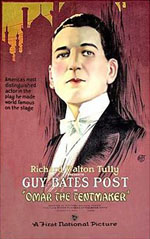 “If forbidding peaceful, nonthreatening, but uninvited speech from a distance closer than eight feet is a ‘narrowly tailored’ means of preventing the obstruction of entrance to medical facilities (the governmental interest the State asserts), narrow tailoring must refer not to the standards of Versace, but to those of Omar the Tentmaker.”
“If forbidding peaceful, nonthreatening, but uninvited speech from a distance closer than eight feet is a ‘narrowly tailored’ means of preventing the obstruction of entrance to medical facilities (the governmental interest the State asserts), narrow tailoring must refer not to the standards of Versace, but to those of Omar the Tentmaker.”
— Hill v. Colo., 530 U.S. 703, 749 (2000).
‘Solomonic’
 “The judgment in today’s case has an appearance of moderation and Solomonic wisdom, upholding as it does some portions of the injunction while disallowing others. That appearance is deceptive. The entire injunction in this case departs so far from the established course of our jurisprudence that in any other context it would have been regarded as a candidate for summary reversal.”
“The judgment in today’s case has an appearance of moderation and Solomonic wisdom, upholding as it does some portions of the injunction while disallowing others. That appearance is deceptive. The entire injunction in this case departs so far from the established course of our jurisprudence that in any other context it would have been regarded as a candidate for summary reversal.”
— Madsen v. Women's Health Ctr., 512 U.S. 753 (1994).
‘Hideous monster’
 “If Congress can reach out and command even those furthest removed from an interstate market to participate in the market, then the Commerce Clause becomes a font of unlimited power, or in Hamilton’s words, ‘the hideous monster whose devouring jaws … spare neither sex nor age, nor high nor low, nor sacred nor profane.’ The Federalist No. 33, p. 202 (C. Rossiter ed. 1961).”
“If Congress can reach out and command even those furthest removed from an interstate market to participate in the market, then the Commerce Clause becomes a font of unlimited power, or in Hamilton’s words, ‘the hideous monster whose devouring jaws … spare neither sex nor age, nor high nor low, nor sacred nor profane.’ The Federalist No. 33, p. 202 (C. Rossiter ed. 1961).”
— Nat’l Fed’n of Indep. Bus. v. Sebelius, 132 S. Ct. 2566, 2623 (2012) (Scalia, J., dissenting).
‘Bulldozer of social engineering’
 “As its instrument of destruction, the bulldozer of its social engineering, the Court invents a boundless, and boundlessly manipulable, test of psychological coercion, which promises to do for the Establishment Clause what the Durham rule did for the insanity defense. Today’s opinion shows more forcefully than volumes of argumentation why our Nation’s protection, that fortress which is our Constitution, cannot possibly rest upon the changeable philosophical predilections of the Justices of this Court, but must have deep foundations in the historic practices of our people.”
“As its instrument of destruction, the bulldozer of its social engineering, the Court invents a boundless, and boundlessly manipulable, test of psychological coercion, which promises to do for the Establishment Clause what the Durham rule did for the insanity defense. Today’s opinion shows more forcefully than volumes of argumentation why our Nation’s protection, that fortress which is our Constitution, cannot possibly rest upon the changeable philosophical predilections of the Justices of this Court, but must have deep foundations in the historic practices of our people.”
— Lee v. Weisman, 505 U.S. 577, 631-632 (1992) (Scalia, J., dissenting).
‘The Devil’
 “How much remedying of packing or cracking by the hypothetical district? How many legislators must have had the intent to pack and crack — and how efficacious must that intent have been (must it have been, for example, a sine qua non cause of the districting, or a predominant cause)? ... But the devil lurks precisely in such detail. The central problem is determining when political gerrymandering has gone too far. It does not solve that problem to break down the original unanswerable question (How much political motivation and effect is too much?) into four more discrete but equally unanswerable questions.”
“How much remedying of packing or cracking by the hypothetical district? How many legislators must have had the intent to pack and crack — and how efficacious must that intent have been (must it have been, for example, a sine qua non cause of the districting, or a predominant cause)? ... But the devil lurks precisely in such detail. The central problem is determining when political gerrymandering has gone too far. It does not solve that problem to break down the original unanswerable question (How much political motivation and effect is too much?) into four more discrete but equally unanswerable questions.”
— Vieth v. Jubelirer, 541 U.S. 267 (2004) (Scalia, J., writing for the Court).
Grim fairy tales
 “Certainly the books we give children to read—or read to them when they are younger—contain no shortage of gore. Grimm’s Fairy Tales, for example, are grim indeed. As her just deserts for trying to poison Snow White, the wicked queen is made to dance in red hot slippers ‘till she fell dead on the floor, a sad example of envy and jealousy.’ Cinderella’s evil stepsisters have their eyes pecked out by doves. And Hansel and Gretel (children!) kill their captor by baking her in an oven.”
“Certainly the books we give children to read—or read to them when they are younger—contain no shortage of gore. Grimm’s Fairy Tales, for example, are grim indeed. As her just deserts for trying to poison Snow White, the wicked queen is made to dance in red hot slippers ‘till she fell dead on the floor, a sad example of envy and jealousy.’ Cinderella’s evil stepsisters have their eyes pecked out by doves. And Hansel and Gretel (children!) kill their captor by baking her in an oven.”
— Brown v. Entm’t Merchs. Ass’n, 131 S. Ct. 2729, 2736 (2011).
‘Hollow’
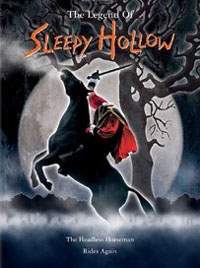 “The Framers could not have envisioned such a hollow constitutional guarantee. No framing-era confrontation case that I know of, neither here nor in England, took such an enfeebled view of the right to confrontation …
“The Framers could not have envisioned such a hollow constitutional guarantee. No framing-era confrontation case that I know of, neither here nor in England, took such an enfeebled view of the right to confrontation …
‘Transparently false’
“Today’s tale—a story of five officers conducting successive examinations of a dying man with the primary purpose, not of obtaining and preserving his testimony regarding his killer, but of protecting him, them, and others from a murderer somewhere on the loose—is so transparently false that professing to believe it demeans this institution …
‘Judicial mischief’
“But reaching a patently incorrect conclusion on the facts is a relatively benign judicial mischief; it affects, after all, only the case at hand …
‘Faux’
“Today’s decision is not only a gross distortion of the facts. It is a gross distortion of the law—a revisionist narrative in which reliability continues to guide our Confrontation Clause jurisprudence, at least where emergencies and faux emergencies are concerned … ”
— Michigan v. Bryant, 131 S. Ct. 1143, (2011) (Scalia, J., dissenting).
Bonus tracks
‘More than doubly ... plus a little’
CHIEF JUSTICE ROBERTS: You think the Treaty gives you a more compelling governmental interest than the Controlled Substances Act?
MR. KNEEDLER: I certainly do. And the two together, I think, are doubly compelling, because the Government — the United States has a compelling interest in encouraging this, and section 801(a) …
JUSTICE SCALIA: More than doubly. It has to be doubly, plus a little, if you said that one is even more than the other.
— Gonzales v. O Centro Espirita Beneficiente Uniao Do Vegetal, 2005 U.S. Trans. LEXIS 48 (U.S. Trans. 2005).
Take My Breath away

“Beyond the empty talk of a ‘national consensus,’ the Court gives us a brief glimpse of what really underlies today’s decision: pretension to a power confined neither by the moral sentiments originally enshrined in the Eighth Amendment (its original meaning) nor even by the current moral sentiments of the American people. ‘The Constitution,’ the Court says, ‘contemplates that in the end our own judgment will be brought to bear on the question of the acceptability of the death penalty under the Eighth Amendment.’ (The unexpressed reason for this unexpressed ‘contemplation’ of the Constitution is presumably that really good lawyers have moral sentiments superior to those of the common herd, whether in 1791 or today.) The arrogance of this assumption of power takes one’s breath away. And it explains, of course, why the Court can be so cavalier about the evidence of consensus. It is just a game, after all.”
— Atkins v. Virginia, 536 U.S. 304 (2002) (Scalia, J., dissenting)
‘Violently abhors’
“The interpretive philosophy of the ‘living constitution’ — a document whose meaning changes to suit the times, as the Supreme Court sees the times — continues to predominate in the courts, and in the law schools. Indeed, it even predominates in the perception of the ordinary citizen, who has come to believe that what he violently abhors must be unconstitutional.”
— Antonin Scalia, Forword to Originalism: A Quarter-Century of Debate, 43 (Steven G. Calabresi, ed. Regnery Publishing 2007).
Rights of man, not polar bears
“All the provisions of the Bill of Rights set forth the rights of individual men and women – not, for example, of trees or polar bears. … But to return to, and summarize, my principal point, which is the conformity of today’s opinion with the original meaning of the First Amendment. The Amendment is written in terms of ‘speech,’ not speakers. Its text offers no foothold for excluding any category of speaker, from single individuals to partnerships of individuals, to unincorporated associations of individuals, to incorporated associations of individuals … We should celebrate rather than condemn the addition of this speech to the public debate.”
— Citizens United v. FEC, 558 U.S. 310, 391-392 (2010).
‘Get over it!’
 “You wanna talk about Bush versus Gore. I perceive that. I and my court owe no apology whatever for Bush versus Gore. We did the right thing. ... Get over it. It's so old by now. The principal issue in the case, whether the scheme that the Florida Supreme Court had put together violated the federal Constitution, that wasn't even close. The vote was seven to two. [Moreover,] it was Al Gore who made it a judicial question. It was he who brought it into the Florida courts. We didn't go looking for trouble. It was he who said, ‘I want this to be decided by the courts.’ What are we supposed to say? ‘Oh, not important enough?’”
“You wanna talk about Bush versus Gore. I perceive that. I and my court owe no apology whatever for Bush versus Gore. We did the right thing. ... Get over it. It's so old by now. The principal issue in the case, whether the scheme that the Florida Supreme Court had put together violated the federal Constitution, that wasn't even close. The vote was seven to two. [Moreover,] it was Al Gore who made it a judicial question. It was he who brought it into the Florida courts. We didn't go looking for trouble. It was he who said, ‘I want this to be decided by the courts.’ What are we supposed to say? ‘Oh, not important enough?’”
— Antonin Scalia, in a 2008 interview with Lesley Stahl on CBS 60 Minutes.


